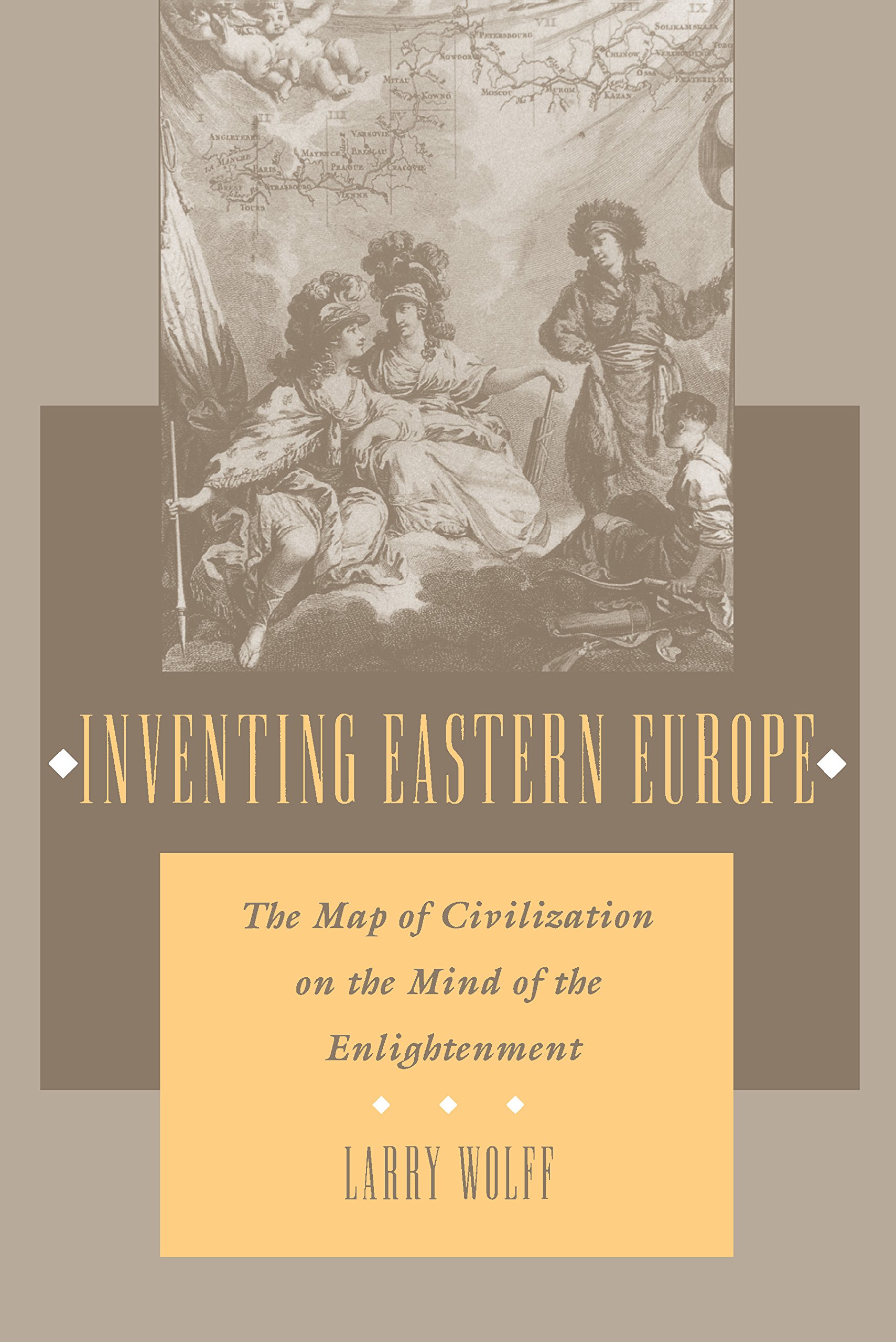Customer Services
Copyright © 2025 Desertcart Holdings Limited
Desert Online General Trading LLC
Warehouse # 7, 4th Street, Umm Ramool, Dubai, 30183, Dubai


Inventing Eastern Europe: The Map of Civilization on the Mind of the Enlightenment
O**R
I loved this book even though I did not agree with it
Larry Wolff provides an important corrective to the idea of Eastern Europe itself. Eastern Europe has suffered by being in thrall to empires: the Ottoman, the Austro Hungarian and finally the Soviet. Wolff points out the history of how the area has been seen as backward, uneducated and in need of civilizing. The idea is not new- it was used by various rulers as an excuse for conquest. the area also suffers geographically by being easy to invade.where Wolff falls down in my opinion is in his insistence in following Edward Said's insistence on the idea of an area as "other." I'm not going to get into why I think this is a lame idea. Ibn Warraq's superb book "In defense of the west" is available on Amazon. However Eastern Europe really was different: the second serfdom which occurred later and was far more repressive than in Western Europe, the belief in Russia that all people were subjects, and possessions of the tsar, rather than citizens, and the lack of industrialization all point to the fact that Eastern Europe was different.However if I did not read this book I could not make these arguments. It is important and even though I am an armchair reader I loved it and learned from it.
A**N
Stunning work
A stunning work, the clearest articulation anywhere of our persistent cultural and political attitudes to Russia and Eastern / Southern Europe. People throw the "b" word around all too often, but this is indeed a brilliant work, at times also a work of literature.
D**D
It's a foundational text for a reason
This is widely seen as a (or even the) foundational text for anyone interested in studying Western understandings of Eastern Europe, and with good reason. The writing is clear and the argument is well made and supported. Early Modern historians often already know all about the ways in which the Enlightenment radically transformed European modes of thinking, not always for the better. Yet as products of the Enlightenment ourselves, a lot of these thought patterns get normalized and ignored as normal or natural. Wolff lays out how the distinction between Eastern and Western Europe, rather than reflecting any clear reality in the period, was arbitrarily created during the Enlightenment, just as were ideas of distinct racial hierarchies. Importantly, these ideas were usually not held by people before the Enlightenment, and Wolff does an excellent job of showing the emergence of new patterns of writing and why they were so popular.
D**E
Unique approach, comprehensive and well-researched
This is a book everybody interested in Eastern Europe should read. I pretty much liked the approach of the author and his general idea of revealing the historical sources of information that led to the present image of the Balkans. All the basic patterns, the prejudices, everything that makes you think what you think nowadays about the Balkans, Central Europe and Russia.It's obvious that Wolff is well travelled and has went through numerous sources. This book's strong side is the unique approach to analyzing texts written by travellers during the Enlightenment and showing their sometimes shockingly naive conclusions. It's not only educational and academic, but also fun to read. Recommended.
L**R
Enlightenment on the Enlightenment
All too often people think of the Enlightenment as a group of smart people thinking about why we are so wonderful. The flip side of Enlightenment thinking is that to make Europeans seem so wonderful, the Philosophes described themselves against an Other, who possessed all the undesirable traits not accepted by the "Enlightened" people. Wolff shows how the Philosophes, with limited actual knowledge of Eastern Europe, used the civilizations east of Germany to show the benefits of living in the West. During the Enlightenment the language used to describe Eastern Europe ascribed barbaric qualities to the people and offered little faith that the people could ever "evolve" as Western Europeans had. Wolff uses maps and traveler's accounts to show the influence the philosphes had on perceptions of Eastern Europe. It is rather disconcerting to note that many of these same perceptions persist today.
Trustpilot
2 weeks ago
3 weeks ago